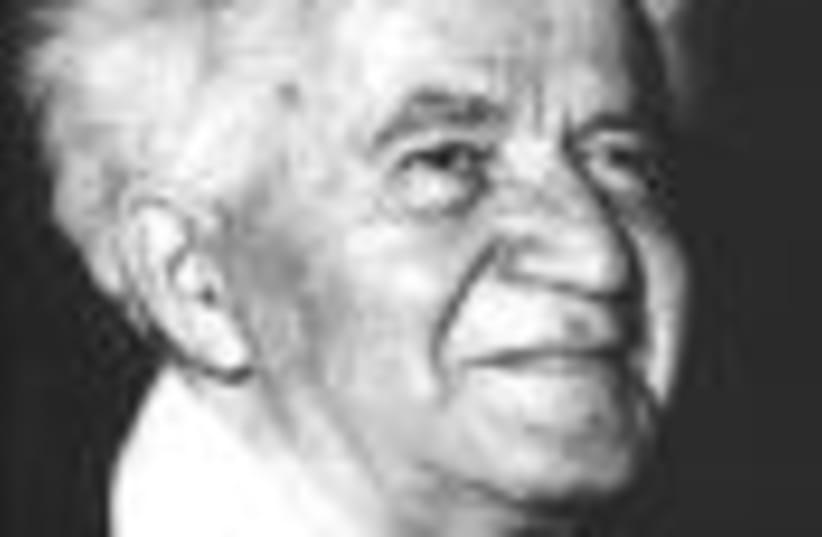| JPOST.COM HIT LIST | |
| JPost.com's most popular articles this past week |
Essay: The aliya of a messianic visionary
The story behind Ben-Gurion's aliya: The importance of 'socialist' in 'socialist Zionist.'


| JPOST.COM HIT LIST | |
| JPost.com's most popular articles this past week |